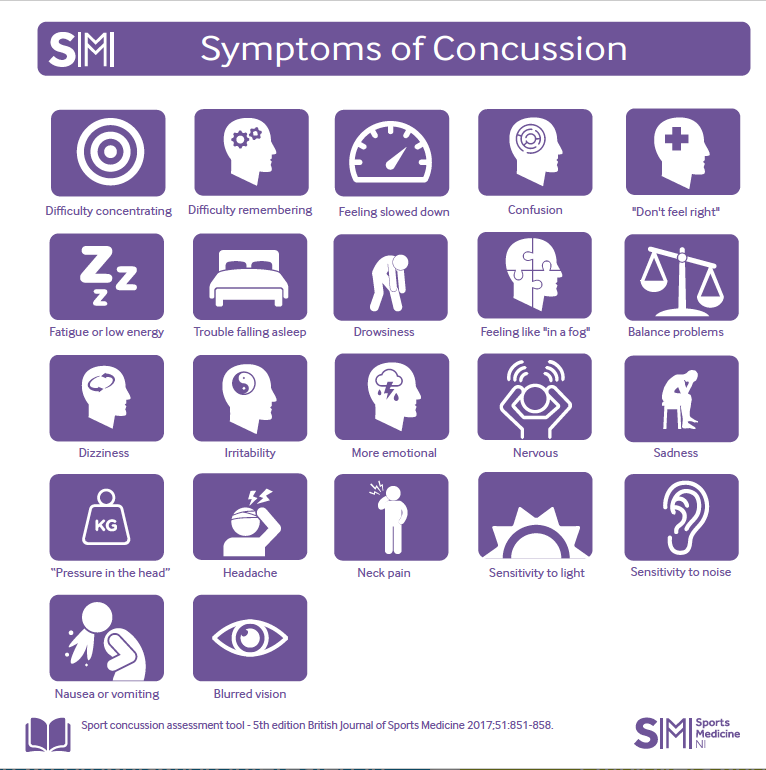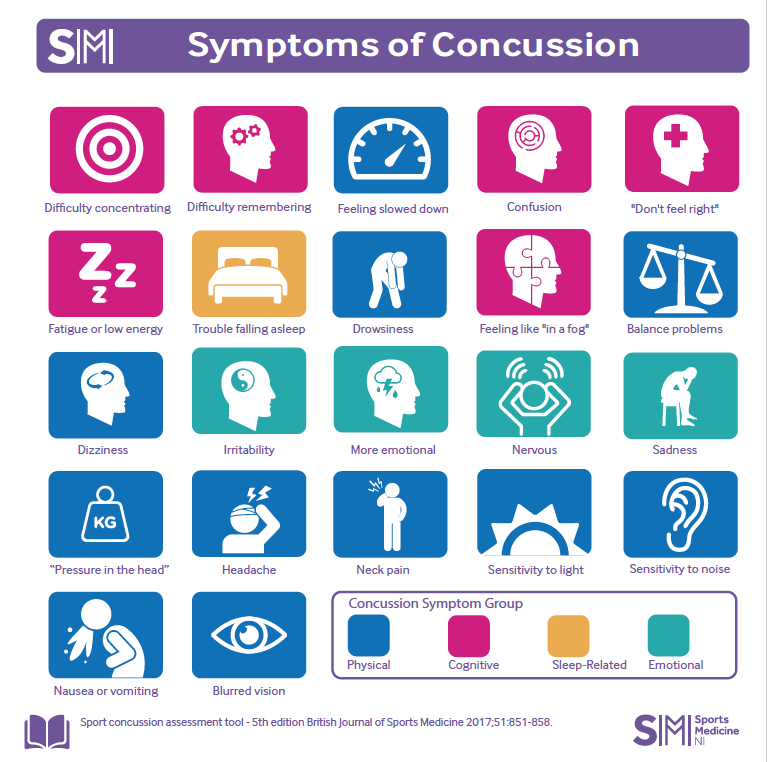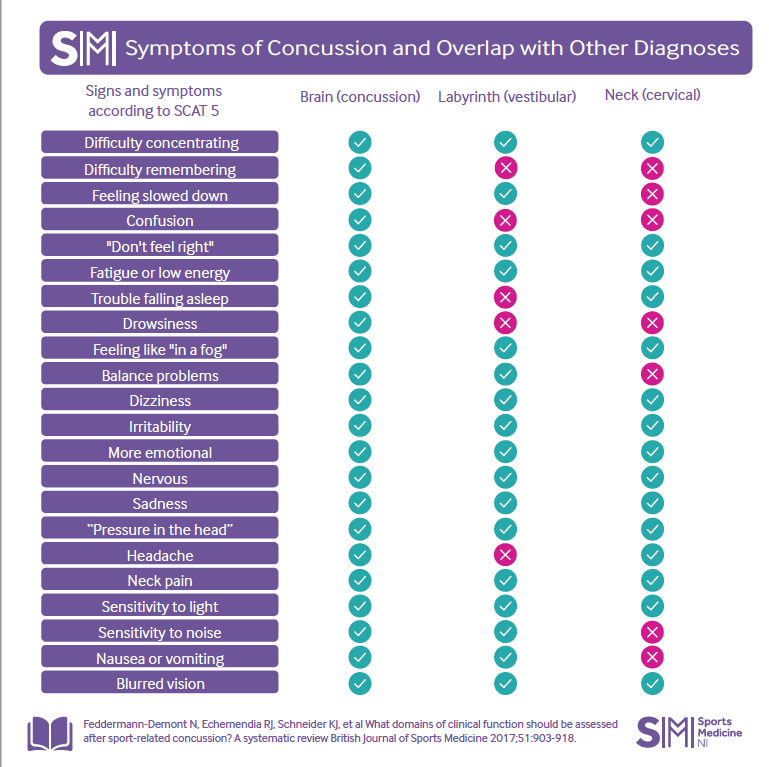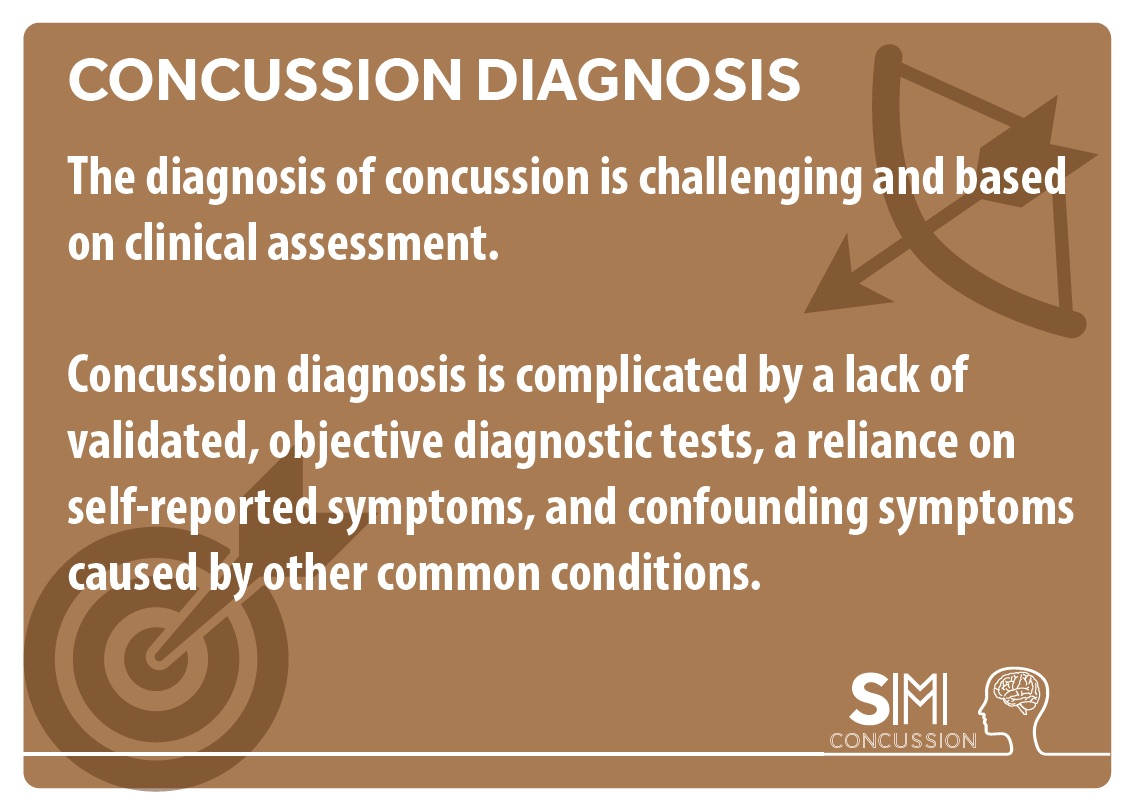
A concussion can be difficult to diagnose. There is no one test or scan that will confirm or deny a concussion. In order to make the diagnosis three conditions need to be present:
- A plausible mechanism of injury to the brain or head which can be due to a direct blow or a transmitted blow from elsewhere in the body.
- Specific symptoms and signs of concussion which we will discuss further down this blog.
- There should be no other confounding conditions that could account for the presenting symptoms.
That is why it is appropriate to fully screen the athlete with a concussion and assess for other potential causes, that require different treatments. These can include issues such as problems with mental health, learning difficulties, intoxication with drugs or alcohol or many other types of illness.
What are the signs and symptoms of concussion?
Many of these symptoms are vague and could be present without necessarily having had a concussion. This is why many sports teams will collect baseline information on their athlete, recording the presence of these symptoms in the absence of head injury.
Concussion symptoms divide into four main groups:
- Physical symptoms such as headache, dizziness, neck pain and nausea or vomiting.
- Cognitive symptoms – problems with how the brain understands and is able to think that can result in issues with confusion, difficulty in concentration and fatigue or low energy.
- Sleep problems
- Emotional symptoms – such as irritability, nervousness, sadness, or anxiousness.
While these signs and symptoms are all suggestive of a concussion they can be suggestive of other issues.
During an injury to the head there can be a disturbance to the vestibular or balance system which may result in over-lapping symptoms. An injury to the neck such as a whiplash injury, can also result in a significant constellation of these signs and symptoms.
That is why it is important to be assessed by a medical professional or physiotherapist with knowledge of the condition. They will identify other potential issues and direct treatment accordingly.
What are the most common concussion symptoms?
In order to answer this question I have summarised a research study that examined a large number of concussed athletes in high school and college sport in the USA. All the athlete‘s symptoms were recorded over the course of one week.
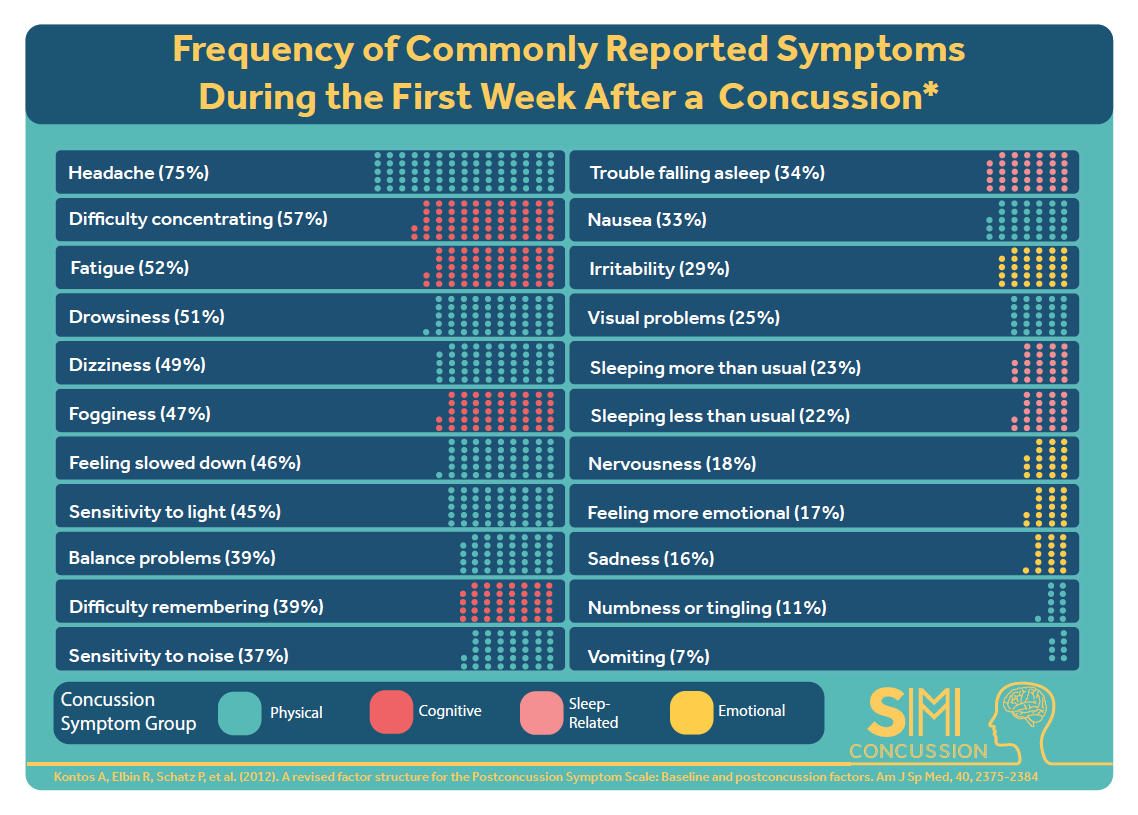
The most common symptom was headache which occurred in 3/4 individuals. This was followed by difficulty in concentrating and fatigue. Symptoms such as numbness or tingling and vomiting while present, are rare and can be associated with potential structural brain injury. They should merit an urgent evaluation in the Emergency Medicine Department.
If you have had a head injury and are experiencing any of these symptoms it is likely that you have had a concussion.
If you need advice on how to manage this condition we would be happy to advise you, here at Sports Medicine NI.

